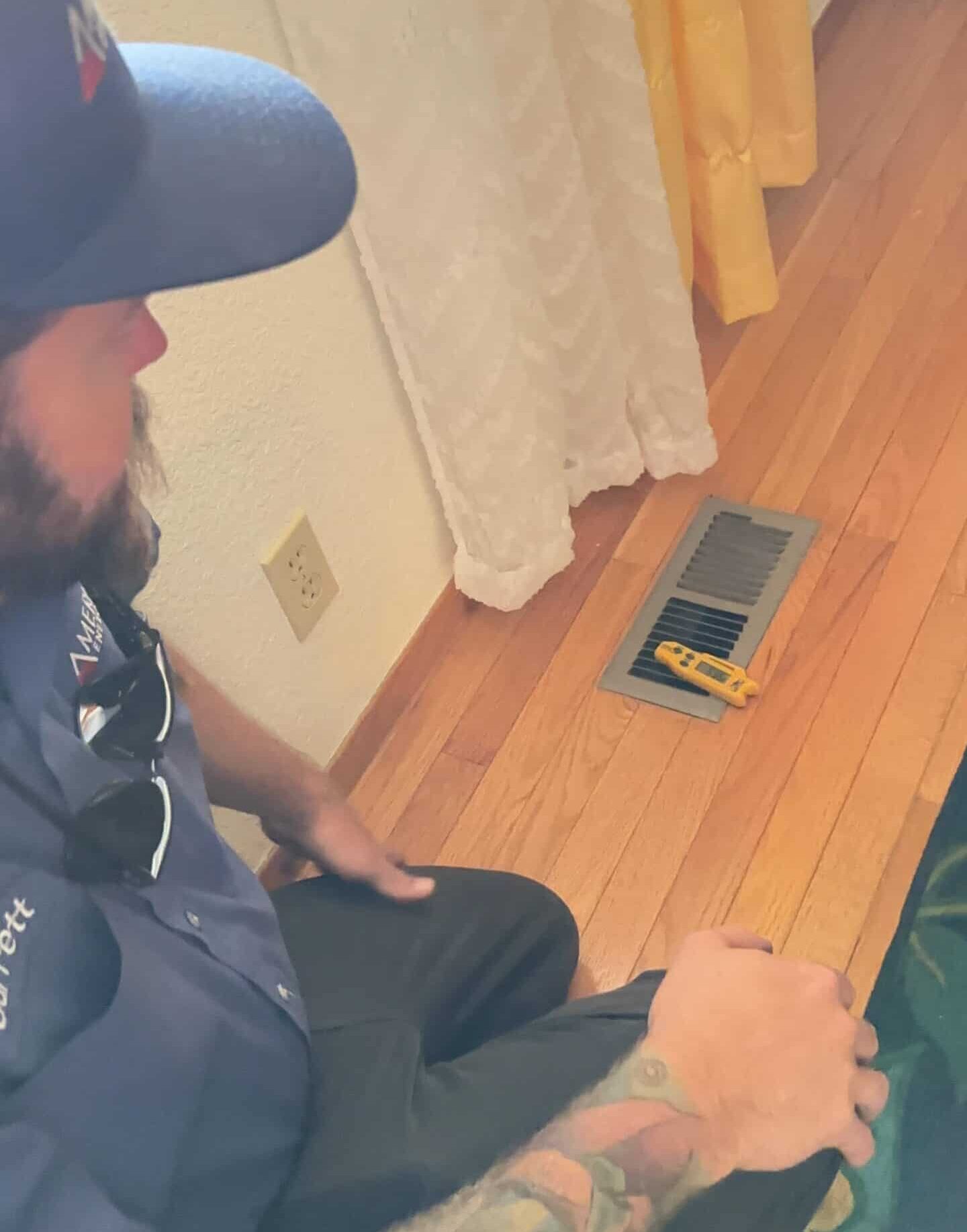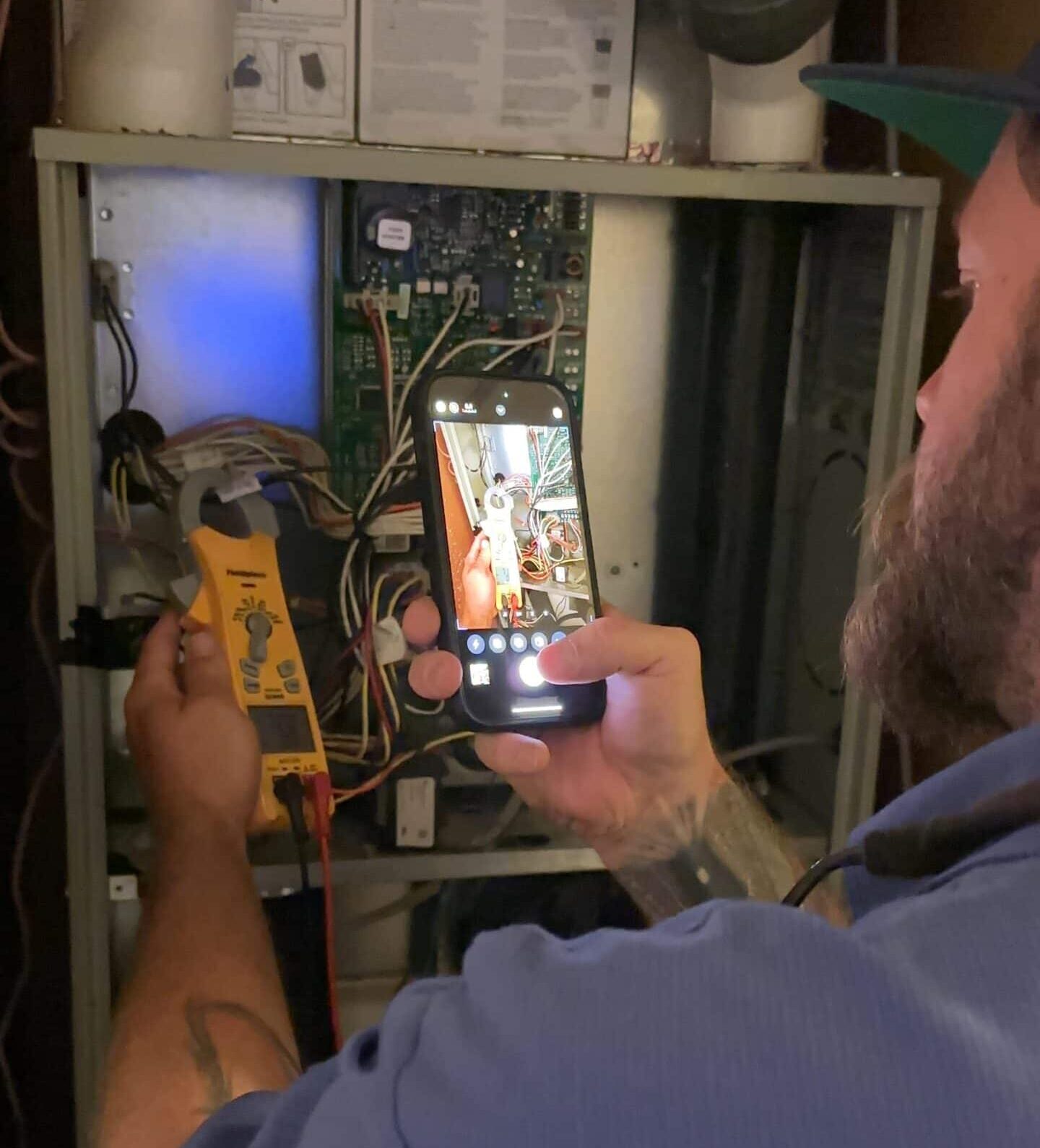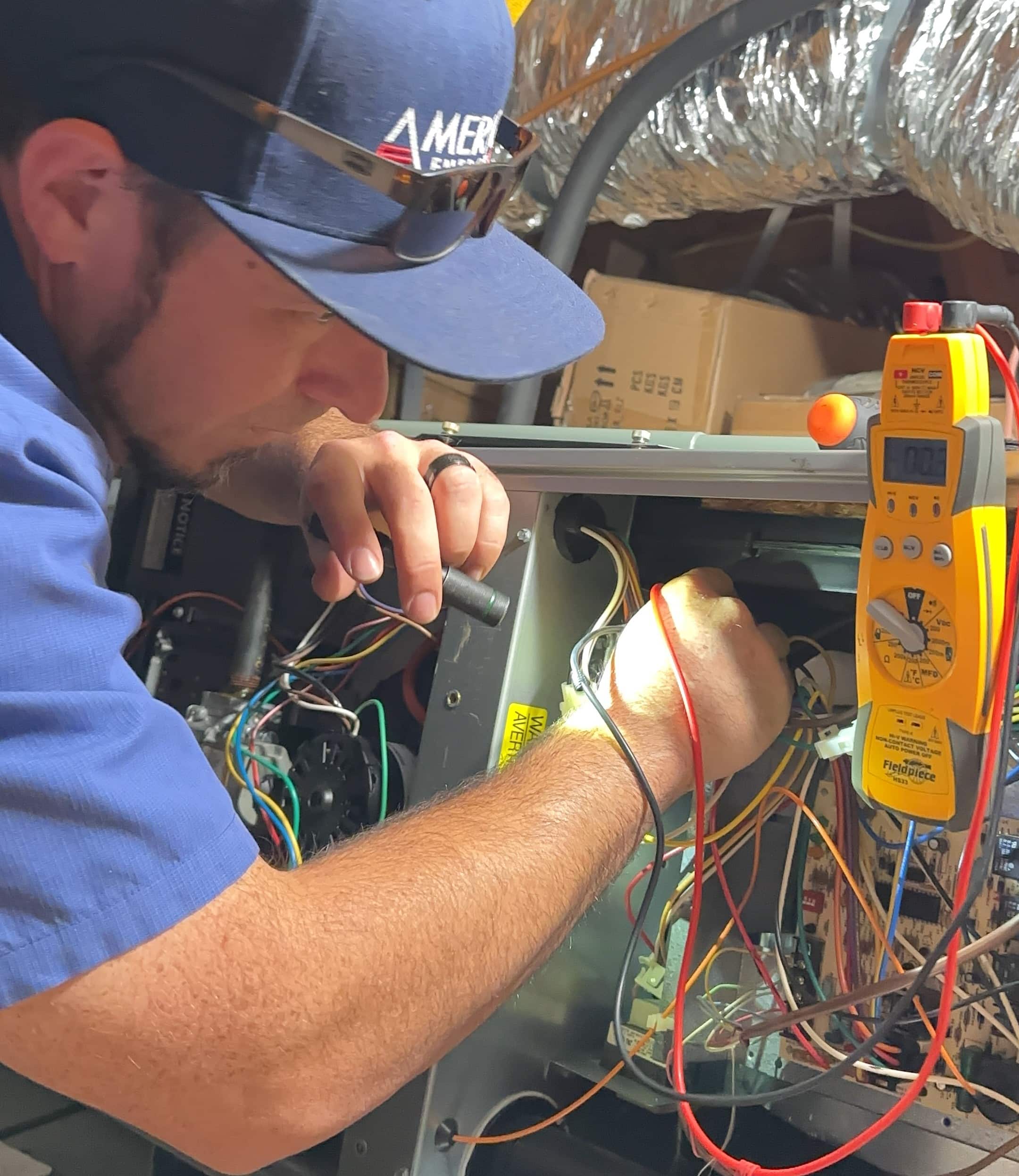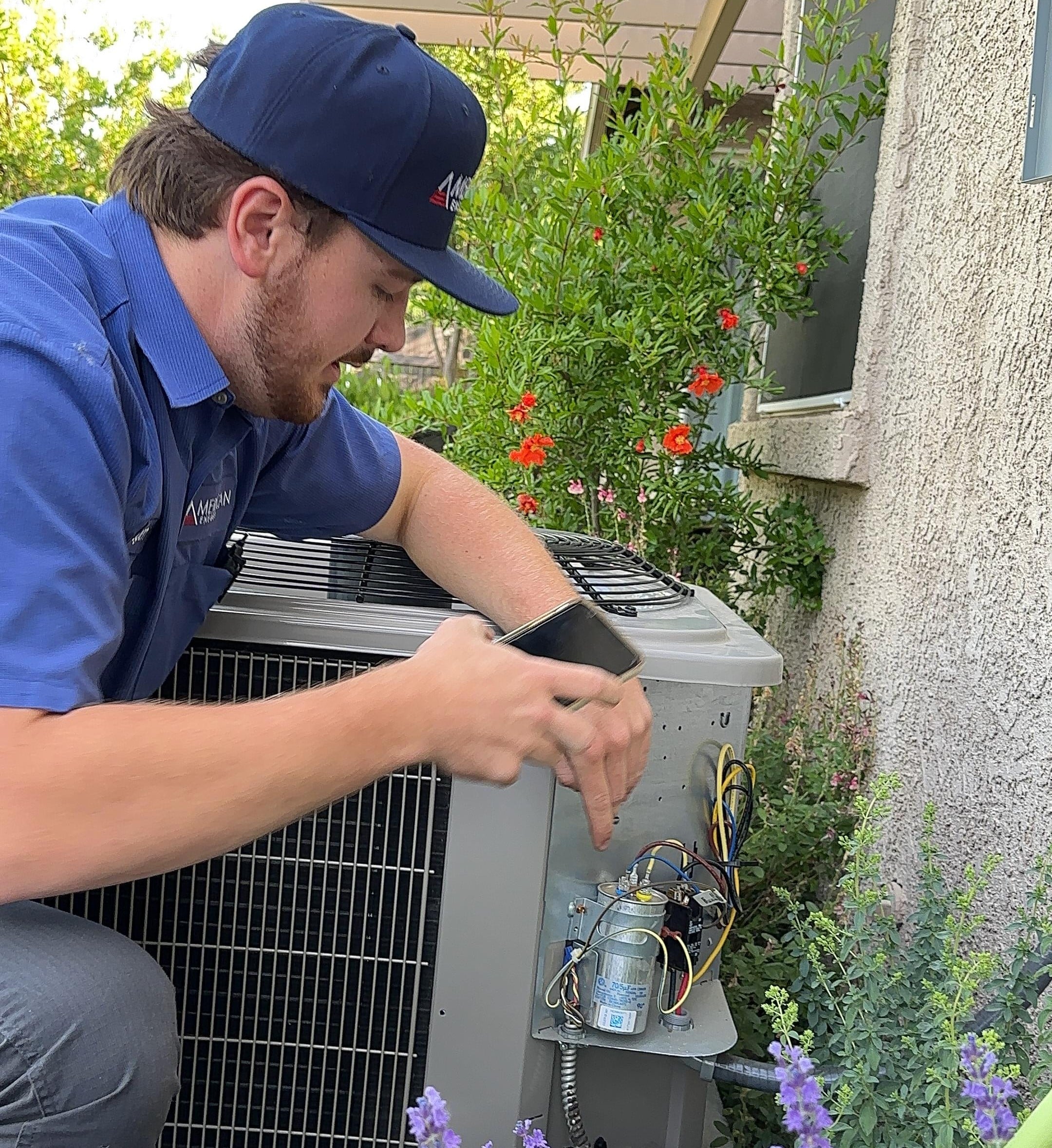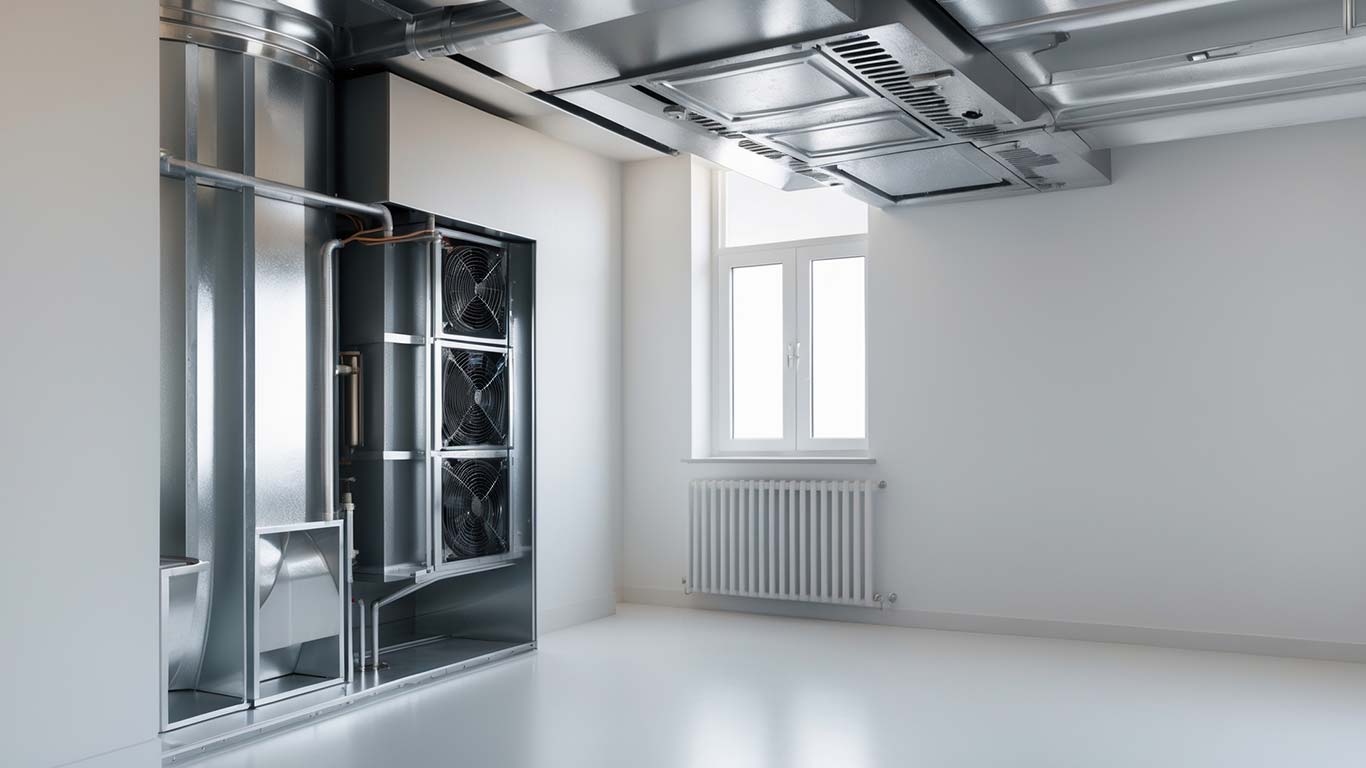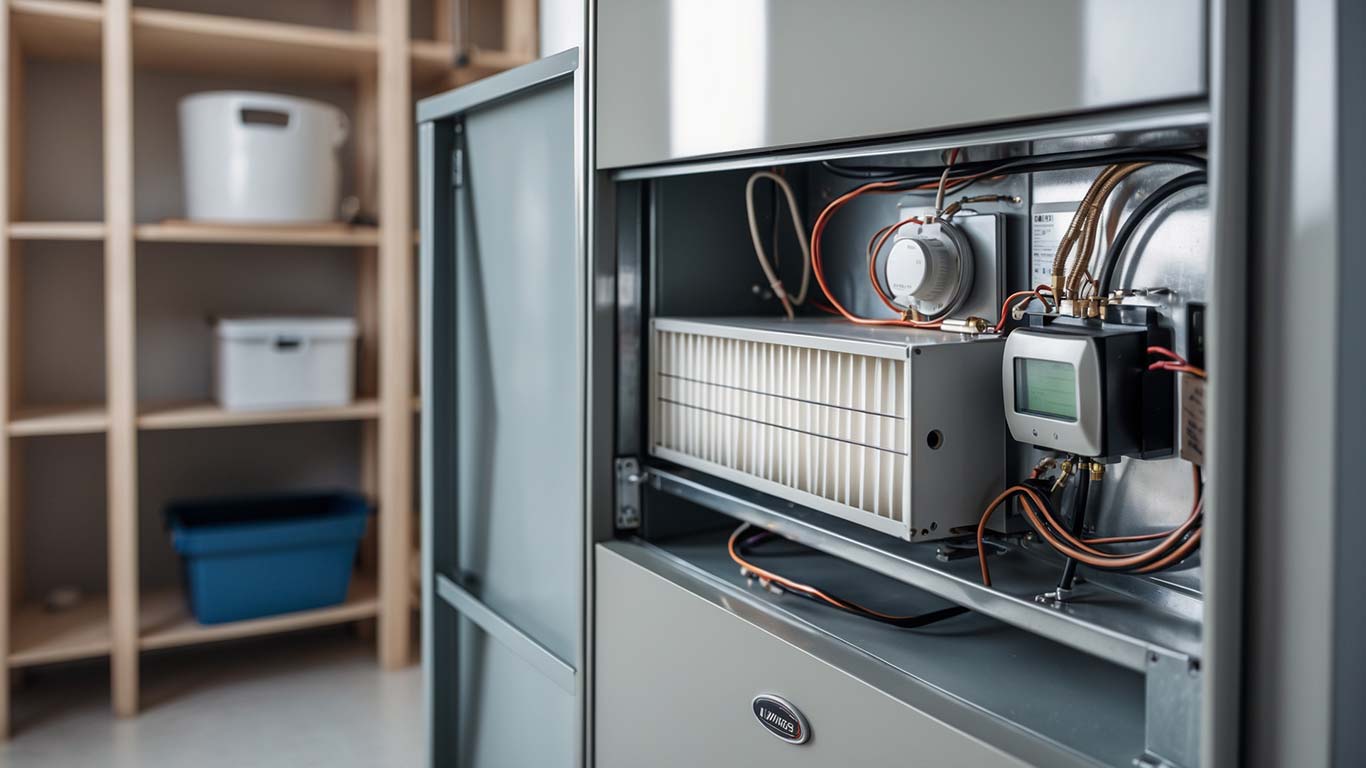Why Is My Furnace Making Noises? Causes and Solutions
Strange sounds can signal underlying issues that may lead to costly repairs or even pose safety risks. In this guide, we’ll explore the most common furnace noises, their meanings, and how to resolve them.
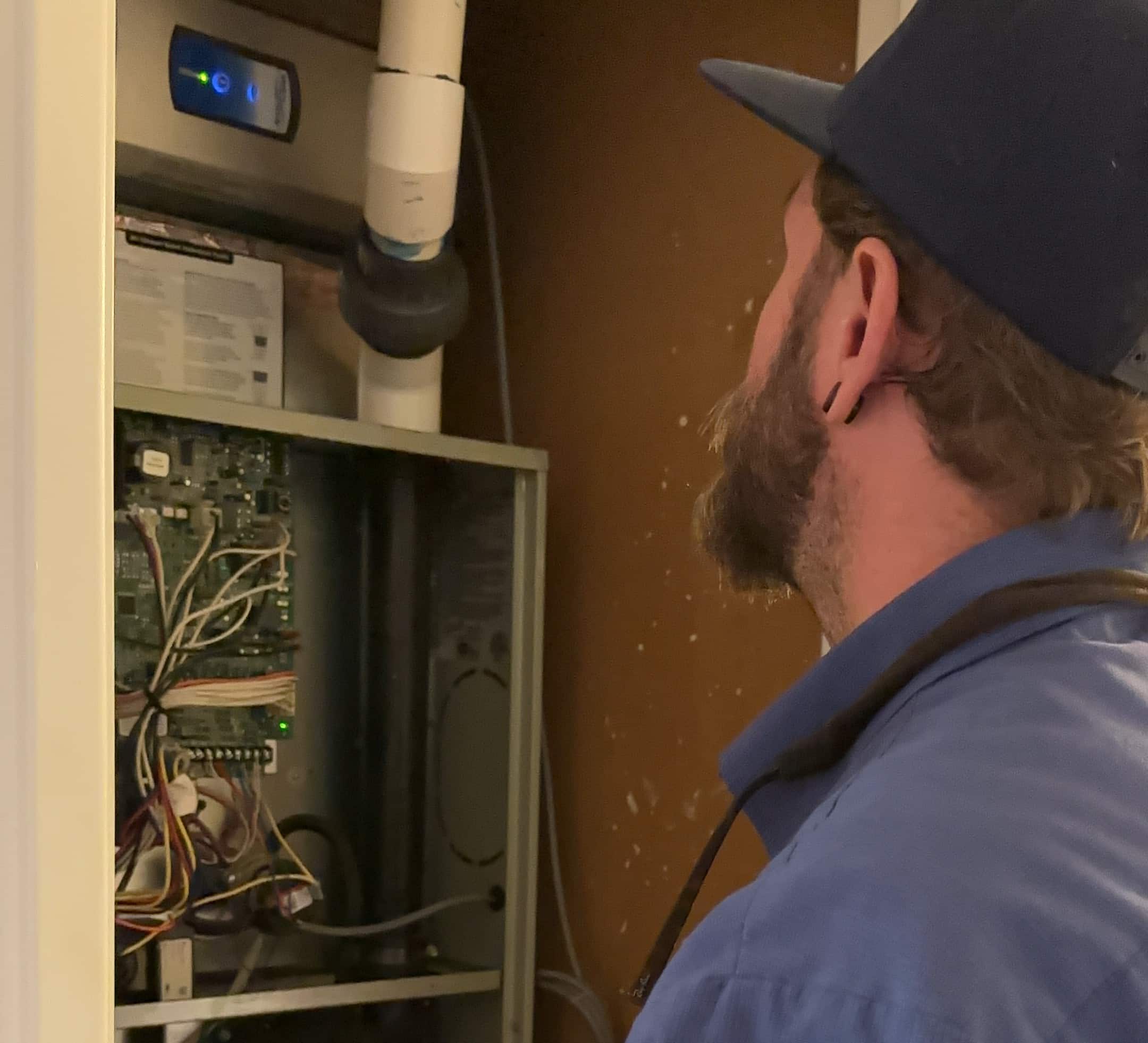
Common Furnace Noises and Their Causes
Furnaces can make various noises, each indicating a specific issue. While some noises may indicate minor problems, others could signal serious concerns that require immediate attention.
Banging or Popping Sounds
Banging or popping noises often occur in gas furnaces due to delayed ignition. This happens when gas builds up in the combustion chamber before igniting, creating a mini explosion that causes the noise. It can also result from expanding or contracting ductwork as the furnace heats or cools.
Solution
For gas furnaces, clean the burners to remove any dirt or debris that may prevent the gas from igniting promptly.
However, if you suspect a ductwork-related problem, add insulation or have an HVAC professional adjust and secure the ducts to minimize expansion and contraction noises.
Clicking Noises
In a gas furnace, the clicking sound can indicate a problem with the ignition system, such as a malfunctioning gas valve, control board, or igniter. In electric furnaces, clicking might indicate a relay issue within the control system.
Solution
- Inspect the ignition system for gas furnaces and replace faulty components like the gas valve or igniter.
- For electric furnaces, check for loose or failing relays in the control system and replace them if necessary. If unsure, call a professional technician to diagnose the issue.
Humming or Buzzing Sounds
A humming or buzzing noise typically results from electrical issues, such as a malfunctioning transformer, a failing capacitor, or loose wiring. These noises can occur in both gas and electric furnaces, as they each use electrical components to function.
Solution
Inspect the transformer, blower motor capacitor, and wiring for signs of wear or looseness. Tighten any loose connections and replace failing components as needed.
Rattling or Clanking Noises
Rattling or clanking sounds usually indicate loose or broken parts inside the furnace, such as screws, panels, or blower components. In gas furnaces, these noises can also signal a cracked heat exchanger, which is a serious safety issue that may result in carbon monoxide leaks.
Solution
Tighten loose screws, secure panels, and inspect the blower assembly for damage in your furnace. Replace damaged parts if necessary.
However, if you have a gas furnace and suspect a cracked heat exchanger, stop using the furnace immediately and call a professional. This is a dangerous issue that requires immediate attention.
Squealing or Screeching Sounds
These high-pitched noises are often due to worn-out blower motor bearings, loose or misaligned belts, or a failing blower motor. These issues can occur in gas and electric furnaces, as both rely on blower systems to circulate warm air.
Solution
- Lubricate the blower motor bearings to reduce friction and noise.
- Check the blower belt for alignment, tightness, and signs of wear. Adjust or replace the belt as needed.
- If the blower motor is failing, consider replacing it to ensure the furnace operates effectively.
Gurgling Noises
Gurgling noises are common in high-efficiency condensing gas furnaces that produce condensation during operation. These sounds often indicate a clogged or blocked condensate drain line or trap, preventing proper water flow. If your furnace has a humidifier, the noise could also come from air bubbles in the water line.
Solution
- Clean the condensate drain line and trap to remove any blockages.
- If a humidifier is connected, inspect the water line for air bubbles or leaks and fix it as needed.
Whistling Sounds
A whistling sound coming from your gas or electric furnace is often caused by airflow issues. This can occur when air struggles to pass through a clogged or dirty air filter, poorly fitted ductwork, or vents that are partially closed. In some cases, the sound may also result from air leaks in the ductwork, where the escaping air creates a whistling noise.
Solution
- Check and replace dirty or clogged air filters to restore proper airflow.
- Inspect the ductwork for leaks or poorly sealed joints and use duct tape or mastic sealant to fix any gaps.
- Ensure all vents and registers are fully open to allow unrestricted airflow.
When to Call a Professional to Inspect Furnace Noises and Repair Services
While some furnace noises can be resolved with DIY fixes, others require the expertise of a professional HVAC technician. This includes:
- Persistent or Worsening Noises: If the strange sounds, such as banging, rattling, or gurgling, persist even after troubleshooting, it may indicate a more serious problem, like a cracked heat exchanger or a failing blower motor.
- Unusual Smells or Gas Odors: A furnace producing strange noises, gas odors, or burning smells is a red flag. Gas leaks or overheating components can pose significant safety risks.
- System Performance Issues: If your furnace makes noises and struggles to heat your home correctly, the underlying issue could involve critical components like the blower or heat exchanger.
- Frequent Cycling or Startup Failures: Clicking noises paired with frequent on-and-off cycling or startup failures may signal ignition system problems or faulty electrical components that need expert attention.
- Water Leaks Around the Furnace: Gurgling noises with visible water pooling around a high-efficiency gas furnace indicate a condensate drainage issue that might require specialized repairs.
Take Action to Address Furnace Noises Today
Address strange furnace noises promptly to prevent costly repairs, improve your system’s efficiency, and ensure your family’s safety. If your furnace makes unusual noises, don’t wait for the problem to worsen.
Call American Energy Heat & Air at (916) 520-9990 for professional furnace inspection and repair services. Our technicians will diagnose the issue and keep your home warm, safe, and comfortable all winter.
FAQs
Is it normal to hear a furnace running?
Yes, it’s normal to hear a furnace operating when it’s actively heating your home. However, if the noise level becomes unusually loud or persistent, it might be a sign that something needs attention.
Why does my furnace make a vibrating noise?
A vibrating noise can occur if components like panels or the blower assembly are loose or out of balance. It could also be caused by vibrations transmitting through the ductwork, so it’s worth having a professional check it out.
Why does my furnace sound like a plane taking off?
A loud, high-pitched noise may indicate issues with the blower motor, such as imbalance or malfunction, or potential ductwork problems. If the noise is unusually intense, it’s best to have a technician inspect your system for proper diagnosis and repair.

